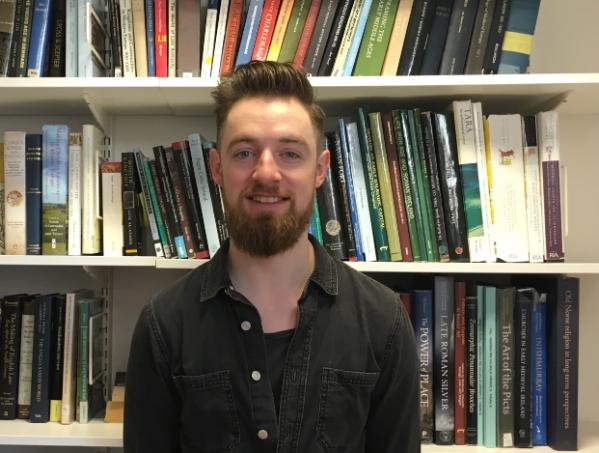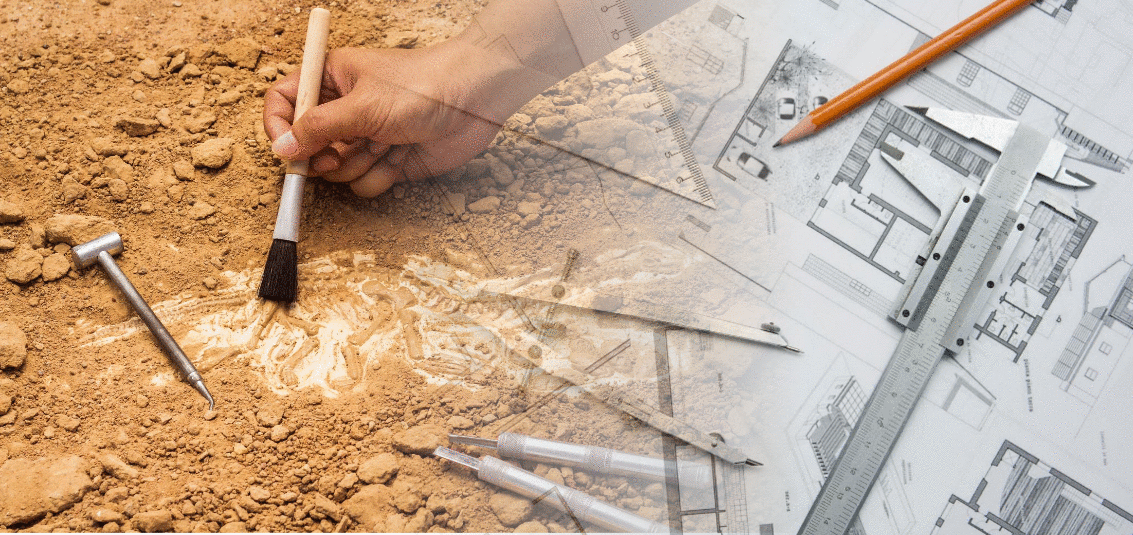The School of the Natural and Built Environment is the newest school in Queen’s – bringing together our well-established disciplines of Architecture, Geography, Planning, Archaeology & Palaeoecology – to study and research the challenges and opportunities in the natural and built environment. You will find this to be an intense, enthusiastic and positive school, one that is built on rigorous inter-disciplinary teams, acute analysis, in-depth reasoning and creative thinking.

The NBE Pathway enables you to study one of a range of courses at Queen's, all focused on the Natural and Built Environment exploring the impact of our human history on the present, developing an understanding and appreciation of the structures of today and acquiring analytical skills, reasoning and practical skills. Patrick Gleeson
Natural and Built Environment
-
What do I need to study on the Natural and Built Environment Pathway?
We would advise that all students check the academic entry requirements (GCSE, A-Levels or equivalent) for each course before applying for their Pathway. Many courses specify that you must have achieved a specific grade at a specific level in order to be conisidered for a place on the undergradtuate programme. Therefore, it is important that you clarify this information as early as possible in order to avoid disappointment.
Please click here to be redirected to the Queen's University course finder, where you should find all necessary details - in particular, pre-requisite information.
- What courses can I study at Queen's after taking part in the Natural and Built Environment pathway?
Students completing this Pathway are eligible to apply for a range of courses under their subject area. For the full list, have a look at our Pathway Courses Available document for further information.
- What careers are available for graduates in this field?
Archaeology
Studying for an Archaeology degree at Queen’s will assist students in developing the core skills and employment-related experiences that are valued by employers, professional organisations and academic institutions. Graduates from this degree at Queen’s are well regarded by many employers (local, national and international) and over half of all graduate jobs are now open to graduates of any discipline, including Archaeology.
Although the majority of our graduates are interested in pursuing careers in archaeology-related areas (town and country planning, environmental impact, Land and Property Services [formerly Ordnance Survey]) significant numbers develop careers in a wide range of other sectors.Geography
Some graduates pursue careers in geography-related areas such as urban and rural planning, environmental conservation and management, careers in GIScience and teaching. A significant number develop careers in a wide range of other sectors, e.g. management, marketing, NGOs, financial services, the civil service (especially land and property, environment, and development agencies), computing (especially using geographic data), and various graduate programmes.
Architecture
Our graduates can be found involved with a surprisingly wide range of activities. Many continue to work in private architectural practices ranging in size from two or three people to a staff of over 100, providing a general practice service to private and institutional clients, designing individual houses, social housing, commercial developments, civic buildings, concert halls, theatres and galleries. Many commissions are won through architectural competitions.
Although primarily intended as a first degree for those wishing to undertake postgraduate studies and become professionally qualified architects, the course offers a wide-ranging general education in design, visual appreciation and problem solving, which is valuable in its own right.
Although a much higher proportion of our graduates progresses to being registered architects, a certain number of our graduates do diversify and move outwards into related careers and roles. They may work in stage set design, town planning or housing policy, conservation of historic buildings, interiors, furniture design or specialist building physics such as acoustics. They may provide technical assistance to voluntary and community groups tackling difficult social and economic problems. Our graduates work in many different parts of the world, have their work published and receive awards.Planning
Although the majority of our graduates pursue careers in planning, the knowledge and skills developed also enable them to develop careers in a wide range of other sectors both in the UK and abroad. Recently, for example, graduates have found employment in China, the USA and New Zealand.
Career sectors that have attracted our graduates in recent years include planning authorities (Northern Ireland, Great Britain and the Republic of Ireland), private planning practice, management, design consultants, housing authorities, health trusts, conservation and environmental organisations, teaching (particularly geography), countryside stewardship, software development and various graduate programmes.
This degree is closely aligned to the requirements of the planning sector and draws on practitioners as guest lecturers. We regularly consult with employers, and links are further enhanced through formal partnership meetings with the bodies that accredit our courses (RICS and RTPI). - What does the Summer School look like?
Under construction.
- How can I get in touch?
If you have a question about one of our Pathways, or want to ask an academic a question, please email us at pop@qub.ac.uk and someone will be in touch!
